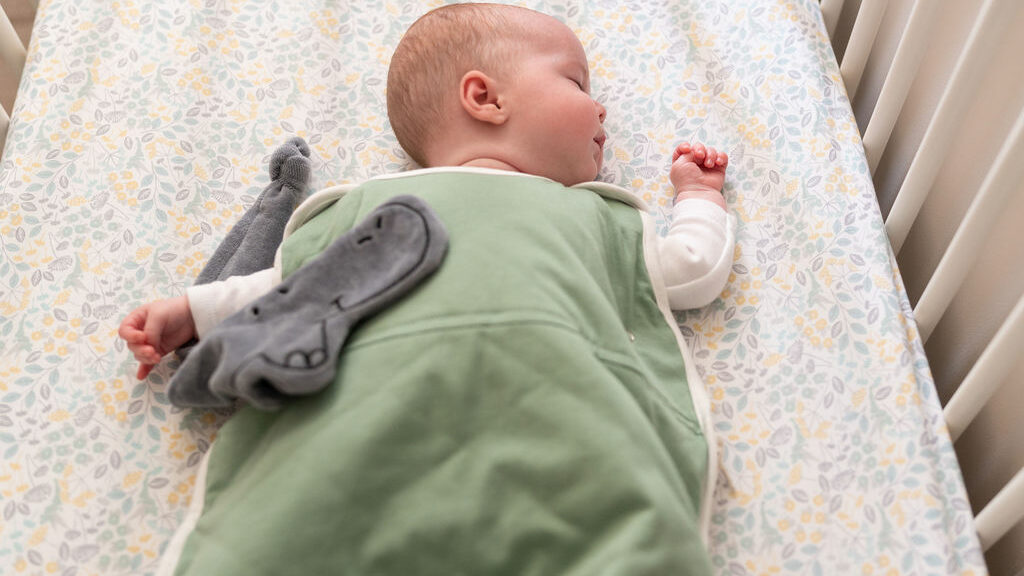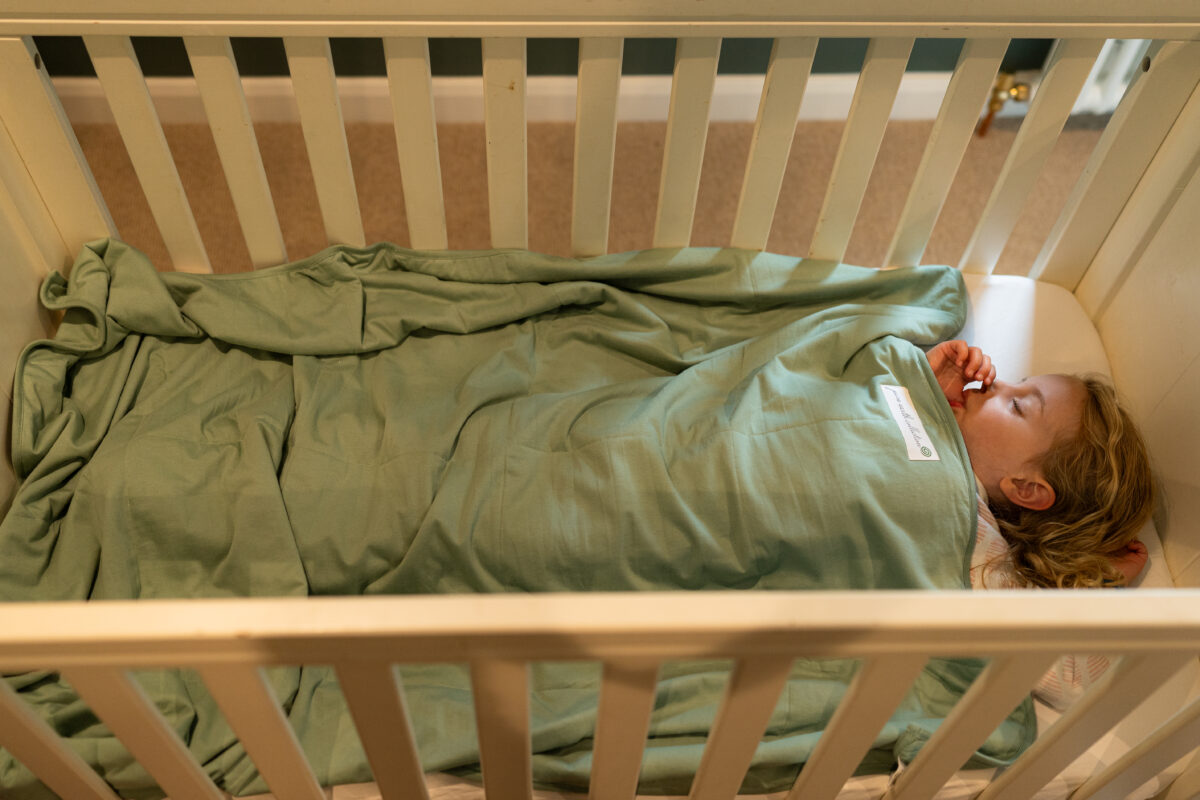
Babies need around 16-18 hours of sleep each day and organic fabrics can actually help promote better and healthier sleep. Natural fabrics, on the whole, are much more breathable than synthetics – with certain natural fabrics having superior performance than others. When natural fabrics are grown and processed organically (without any chemical fertilisers, pesticides, harsh dyes or other nasties) they’re not only a lot safer and healthier for the planet, they’re a lot better for human health and even sleep quality too. Here’s how:
1. Better Temperate Control
According to leading sleep specialists, one of the most common reasons for unnecessary night wakings* in babies is waking up too hot or too cold. Synthetic fabrics are not very breathable as they do not let much air through, so they trap heat and moisture in all the wrong places. For this reason, using polyester in sleepwear inhibits the body’s natural ability to regulate temperature. This often results in babies waking up too cold or too hot, and can even be a risk factor for sudden overheating. Unfortunately, many so-claimed “organic” baby sleeping bags often use a polyester wadding inside – mitigating any of the benefits of that lovely organic outer layer as well as increasing the risk of overheating for small babies.
2. Less Irritation
Organic fabrics are great for sensitive skin or those prone to eczema or rashes. The fibres do not contain harmful chemical residue from the growing process and no toxic chemicals are added during the dying or processing either. So they’re much more gentle and less irritating to sensitive skin. Always look for third-party certifications such as GOTs or similar to make sure you’re buying a truly organic product and read the small print to make sure there is no hidden polyester.
3. Softer, Better Comfort
Organic fabrics are the purest form of natural fabrics available and usually have a superior structure as a result. Organic cotton, for example, is softer and more durable than conventional cotton as it is hand-picked from longer fibres which have stronger connections from one to the other. The gentle processing methods help to maintain the structures of the fibres meaning a softer, longer lasting fabric.
4. Healthier Sleep
As organic fabrics are grown and made without the use of toxic additives they’re a much healthier option too. When friction occurs on fabrics, for example when babies wriggle in their cots or are cuddled, small microfibres are given off into the surrounding air where they can be inhaled or ingested. Once inside the body, these start to break down, releasing any chemicals ingrained in those fibres. Hence, organic fabrics are a far healthier choice in order to minimise the toxic load of little people.
How To Choose The Best Baby Bedding

When choosing the best baby sleeping bags, blankets and duvets for your kids, it’s important to consider the fabric on the inside, as well as the outside. As the filling makes up the majority of the fabric, it’s really important that it’s a high-quality, natural fibre that is going to help regulate your baby’s temperature throughout the night. As discussed above, synthetic fabrics are not breathable and can easily cause overheating and sweaty nights, while not keeping in the warmth on cooler evenings – so avoid polyester inside duvets and avoid baby sleeping bags with a synthetic fill. You may notice that baby sleeping bags with polyester wadding will have a very small window of recommended room temperatures, so if you choose synthetic you’ll need to change your baby’s sleeping bag with every 2-3°C change. This also means trying to guess what temperature your child’s room will be each night, which can be very tricky.
Natural fabrics, such as bamboo, cotton, wool and feather have a much greater breathability than their synthetic counterparts, so look for bedding that avoids polyester and favours these natural materials instead. The champion of all these fabrics, and an upcoming hero in the textile world, is bamboo. This makes bamboo baby sleeping bags a great choice for comfort and temperature regulation and is why we developed our multi-award-winning organic baby sleeping bags using a unique fabric composition of bamboo and organic cotton. We spent years developing and testing the technical elements of our fabrics, resulting in a baby sleeping bag which allows for the biggest temperature range on the market (from 13-27°C). Our organic baby blankets use the same pioneering fabrics as our sleeping bags, and our toddler blankets are a great choice for little ones transitioning out of bags into their “big kid’s” bedding to use as a toddler duvet.
You can also check out our Conscious Brands Directory to find more lovely, sustainable brands making organic baby products.
*Unnecessary night wakings are defined here as any night wake-ups which is not ‘necessary’. At certain stages of age and development, some night wakings (such as waking up for milk feeds, feeling unwell or in pain) will be necessary night wakings and are therefore not included in this definition.
